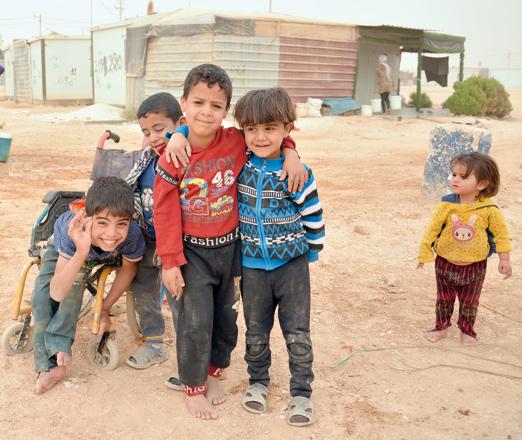- Local News
- Sun-2021-03-21 | 02:34 pm

On the occasion of International Day of Happiness, which is celebrated annually on March 20, Jordanians shared their interpretation of happiness.
Pondering over what really makes them happy, a group of Jordanians told The Jordan Times that "happiness is equated with achievements and success, social equality in all government systems, economic wellbeing, satisfaction of the surrounding environment and most importantly a well-functioning and proper health system”.
For Daleen Khatatneh, a Jordanian citizen, happiness is to "live a virtuous life”. She said that she believes that people capture and identify the concept of happiness differently.
"People are not constantly happy. There are good days and bad ones. I believe that if people live in a well-integrated society, they will be satisfied, which leads to major smiles,” Khatatneh added.
"Living in a healthy social environment, as well as having connections and good relationships with the ones you care about is what happiness is all about,” Bayan Khalid, a Jordanian citizen, told The Jordan Times over the phone on Thursday.
The concept of happiness can be defined from various perspectives, but during an unprecedented global crisis, happiness incorporates social equality that is built into the educational, health and economic sectors of a country, Khalid said.
Jordanians are overwhelmed with fear and anxiety, especially during living in such uncertainty, Sociologist Hussein Khozahe told The Jordan Times.
He added that "the scale of happiness in Jordan is different, because Jordanians’ happiness is unfortunately only connected with finding employment, making a living and moving out of poverty”.
"Amid the pandemic, everything is turbulent and uncertain, but we hope that the situation gets better as soon as possible,” he noted.
The General Assembly of the United Nations in its resolution 66/281 of July 12, 2012 proclaimed March 20, the International Day of Happiness, as a way to recognise the relevance of happiness and well-being as universal goals and aspirations in the lives of human beings around the world, according to the UN website.
"This day recognises the need for a more inclusive, equitable and balanced approach to economic growth that promotes sustainable development, poverty eradication, happiness and the wellbeing of all peoples,” according to the UN.
The International Day of Happiness was founded on June 28, 2012, when all 193 member states of the United Nations adopted UN resolution 66/281 by consensus, recognising happiness as a fundamental human right and goal, and aspiration in the lives of all human beings, according to UN International Day of Happiness (UNIDOH) website.
The resolution was initiated by Bhutan, a country which recognised the value of national happiness over national income since the early 1970s and famously adopted the goal of Gross National Happiness over Gross National Product. It also hosted a high level meeting on "Happiness and Well-Being: Defining a New Economic Paradigm” during the sixty-sixth session of the General Assembly, according to the UN.
World Happiness Report 2020, shows that individuals with higher levels of interpersonal and institutional trust fare significantly better than others in several negative situations, including ill-health, unemployment, low incomes, discrimination, family breakdown, and fears about the safety of the streets.
"Living in a trusting social environment helps not only to support all individual lives directly, but also reduces the well-being costs of adversity,” according to the report.
The Kingdom ranked 127th in the report which covered the 2018-2020 period. The top countries tend to have high values that support wellbeing, including income, healthy life expectancy, social support, freedom, trust and generosity.









